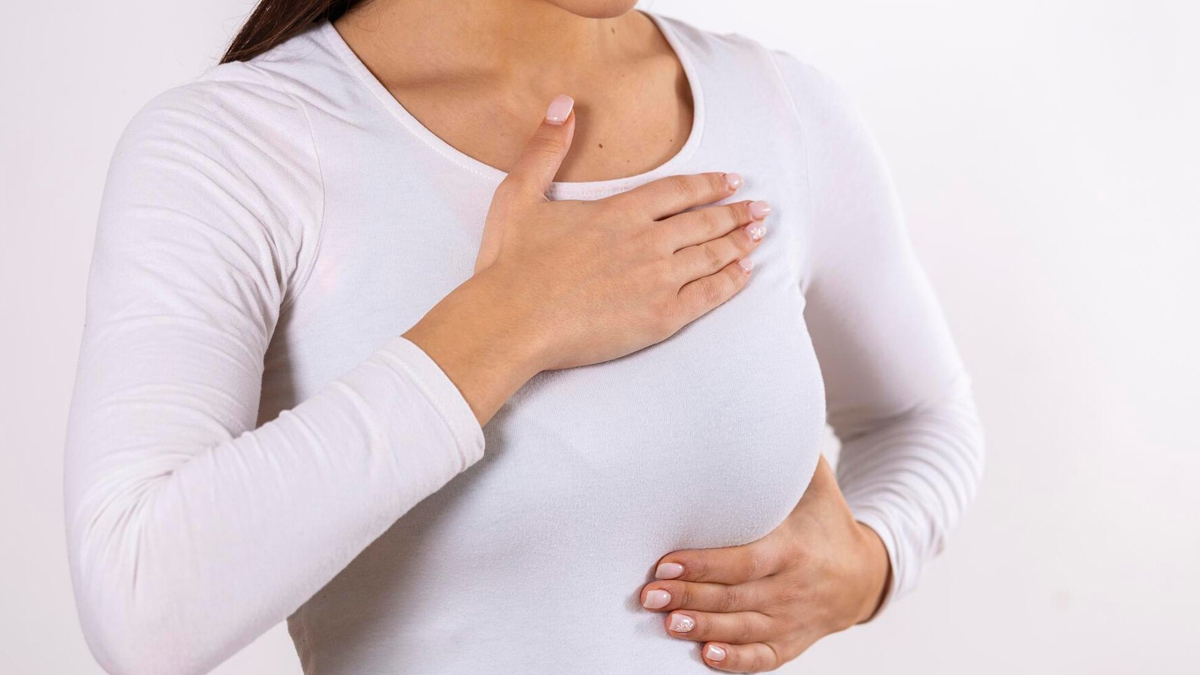
Many people mistakenly believe that having large breasts means having dense breasts, but the two are not the same. Breast density refers to the proportion of glandular and fibrous tissue compared to fatty tissue, whereas breast size is purely physical. This means large breasts are not necessarily dense, and breast density is a crucial factor in overall breast health.
Table of Content:-
Women with dense breasts have a higher amount of fibrous and glandular tissue, making it harder to detect abnormalities on a mammogram. Understanding how to care for dense breasts is essential for early detection and maintaining breast health.
Also Read: What To Do If Your Mammogram Results Indicate Dense Breast Tissue
Dense Breasts And Breast Cancer Risk

Breasts are naturally made up of glandular, connective, and fatty tissue. When breasts are dense, they have a higher amount of glandular and fibrous tissue and less fatty tissue, which can sometimes make it harder to detect cancer on mammograms.
It is important to note that the denser the breasts, the higher the risk of breast cancer. Women with the highest breast density are 4-6 times more likely to develop breast cancer than those with lower density, as glandular tissue is more prone to cancerous changes, according to a 2022 study published in the International Journal of Cancer.
While the benefits of additional imaging tests like ultrasound or MRI for breast cancer screening in women with dense breasts remain uncertain, it is essential to consult a healthcare professional. A personalised diagnostic approach, considering individual medical and family history, can help ensure the most effective screening strategy.
Breast Health Tips For People With Dense Breasts

Breast health is key because it helps with early detection of potential problems like breast cancer, cysts, or infections, ensuring timely treatment. Since factors like dense breast tissue can make abnormalities harder to detect, proper care is crucial for long-term health. Some useful strategies include:
Regular screening and monitoring: Annual mammograms are crucial, but women with dense breasts may benefit from additional screening tests such as breast ultrasound or Magnetic Resonance Imaging (MRI).
Also Read: Dense Breasts Are A Risk Factor For Breast Cancer: What Do Dense Breasts Mean?
Maintain a healthy lifestyle: A balanced lifestyle plays a vital role in breast health. Some key habits to adopt include eating a nutrient-rich diet focused on anti-inflammatory foods such as leafy greens, berries, nuts, and omega-3 fatty acids; exercising regularly; and limiting alcohol intake.
Self-examination of breasts: While self-exams do not replace medical screenings, it is also important to perform regular breast self-examination, which can help you become familiar with your breasts and detect changes early. Look for lumps, dimpling, nipple discharge, or any noticeable changes in breast size or shape. Conduct self-exams once a month, preferably a few days after your menstrual cycle.

Conclusion
Dense breasts are common, but they can make it harder to detect problems like breast cancer. While they may increase cancer risk, regular screenings, a healthy lifestyle, and self-exams can help with early detection. Talking to a doctor about the best screening options is important, and by staying aware and taking care of your breast health, you can lower risks and stay in control.
Also watch this video
How we keep this article up to date:
We work with experts and keep a close eye on the latest in health and wellness. Whenever there is a new research or helpful information, we update our articles with accurate and useful advice.
Current Version